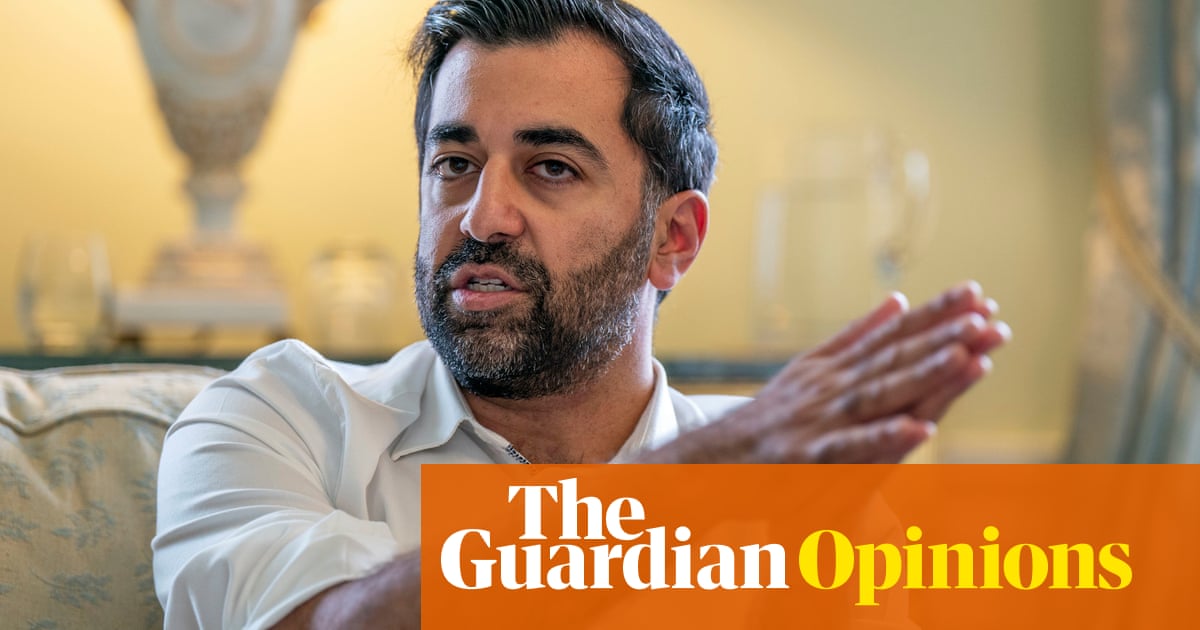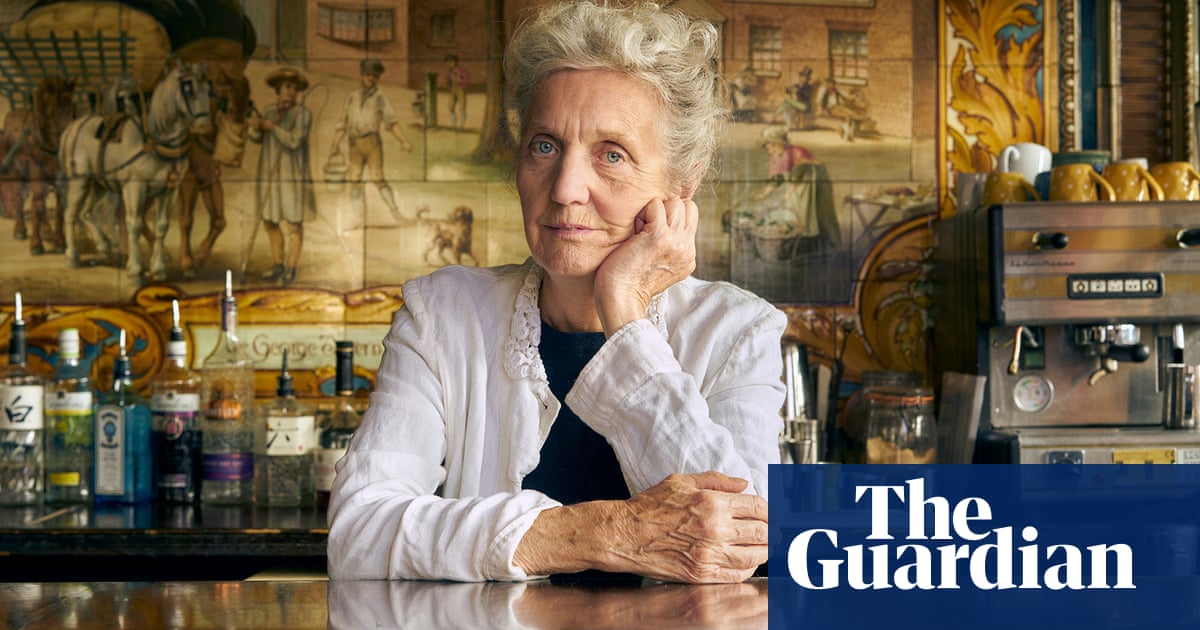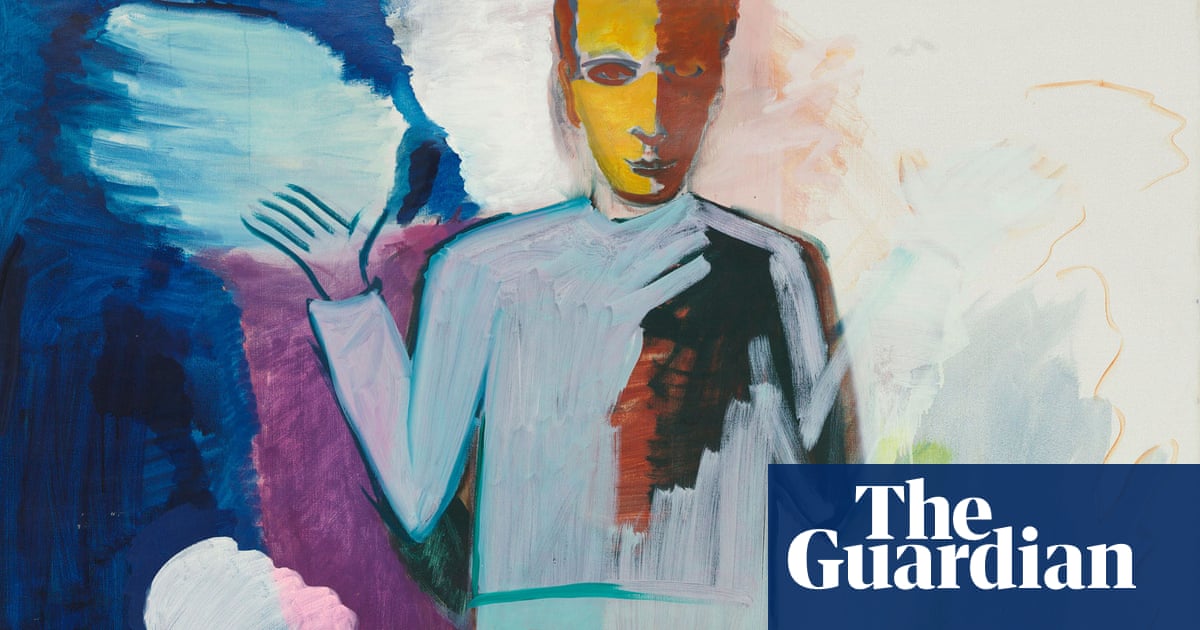
It’s difficult to describe the feelings of jubilation, guilt, disbelief, confusion, gratitude and fear that came with the news that Shakespeare’s Globe would reopen and that I would be playing Flute in A Midsummer Night’s Dream, then Sir Andrew Aguecheek in Twelfth Night, then both concurrently. I couldn’t stop thanking God or panicking.
I’d had 15 months of uncertainty to prepare myself mentally, and when I finally drew into Blackfriars station on the Thames and saw the iconic thatched wooden “O” of the Globe sitting on the riverbank, living, as it had, in my dreams for over a year, I started hyperventilating the second I alighted. I regained composure long enough to wave some masked hellos to the strangers I would be spending the next six months with, then lost it all again when we made our introductions on stage. I have an occasional stammer that hasn’t really troubled me since my mid-20s. It came blazing back the second I tried to say “Fouracres” and “playing”, then us brand-newbies were introduced to the building.
If you haven’t been to the Globe, it is – in the briefest terms – overwhelmingly beautiful. As exact a replica as possible of the original, its wood is knitted together with lime, hair, rough-cast; iron grills sit in the tiring-house doors; you can smell the wet moss on the thatch when it rains. The very joists are hammered wooden pegs. The pillars that adorn the stage look like the blood marble of Renaissance churches and the ceiling itself is painted with the heavens according to the period, with snarling zodiacs twisting around an ancient gleaming sun. When the doors are open in the yard, you can see the Thames flowing with busy boats, and you can tell the time by the chiming of St Paul’s Cathedral bells on the opposite bank. Headline: lovely office, fair bit of pressure not to be rubbish.
It is, crucially, a very exposing space to perform in. Rehearsals were strange, really: five weeks in a white-walled studio with all the doors and windows open, two metres apart from each other, strictly masked when we weren’t speaking. It’s hard to forge a sense of connection with your fellow actors, or gauge whether you’re doing a good job. Acting is an easy career in which to feel self-doubt, loneliness and impostor syndrome at the best of times, never mind after a year staring at the walls wondering if you’ll ever work again and being told by the government to retrain in cyber. By the time you find yourself rehearsing the actual show in the actual space, with thin air behind you, to your sides, the sky up above, the yard below you and endless empty galleries running up, over and around your head, it’s natural to feel swallowed up, insignificant and unimpressive. Three days before we were to open, my temples ached. How could this possibly work? What was I doing here?
We opened at quarter capacity, 400 people, with an introduction from the dauntlessly compassionate artistic director and a blessing from the Dean of Southwark. I remember nothing of the first 20 minutes but fear. Like my voice was breaking fruitlessly on the banks of the seats like a sick seagull caught in a tornado. Then the first laugh came. I hadn’t heard a live crowd laugh for 15 months; I’d only played a crowd this big once before, years ago. They laughed at a joke more than 400 years old. It hit me straight in the heart like a boxing glove made of compacted candy floss. The laugh seemed to smash into a billion crystalline pieces and fill all the empty air in the space with a dust that stayed there, and that we all breathed in, and suddenly there was no empty air, there was water, and we were all swimming through it, sometimes as fairies, sometimes goblins, sometimes tinkers and joiners, Greek gods and heroes, lovers and madmen.
At the end of the show we danced the frenzied Shakespearean jig with the band, and I stood there at the last parp of the trumpet with my friends ready for the bows, and when our backs bent the noise of that quarter-full theatre sounded like the belly-deep roar of a filthy great triumphant monster that was furiously ready to wake up. I burst out laughing.
As of last week we’re up to about 1,500 people, including 400-500 standing “groundlings” in the yard, pressed almost right up to the stage, staring up at you. The noise of them, when they’re into it, is like the Colosseum. It’d be a great way to wrap this up to tell you that the laughter and good vibes have done nothing but build since then, but it’s obviously more complicated than that and the hard work’s never stopped. It would be equally effective to turn round and go it’s been a slog and we’re all struggling, but speaking for myself I’d never rather be doing anything else and every day I perform I feel like I’m getting away with something, like having playtime during lessons. And I wish I had a column to write on every individual cast and crew member I share my days with, and what amazing, kind, solid, caring, hard-working people they all are.
I’ll leave you with the most meaningful, tiny thing: five minutes before the show starts, they ring an old-fashioned, handheld bell in the piazza outside the theatre, to let people know the show’s starting. I can hear the bell through our dressing-room window. The bell rings and people stuff tinnies into their back pockets and unfurl their plastic ponchos. The bell rings and Londoners in cloth caps on the bank wolf down hot beef from the spit and make their way past the oyster hawkers. The bell rings and at a Wolverhampton primary school in the 1990s my class and I run out to the playground. The bell rings over the sound of the police boats and the helicopters and the buskers. The bell rings over the sound of the bear-baiting roars, the curs barking, the creaking cartwheels and the splash of the ferrymen. The bell rings and theatregoers, some in trainers, some in ruffs, some carrying smartphones, some carrying swords, drain from the piazza into the yard through the wide doors like a plughole in a big sink, to hear a story written by a good-for-nothing glover’s apprentice.












